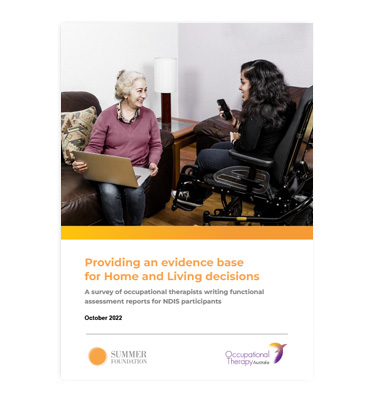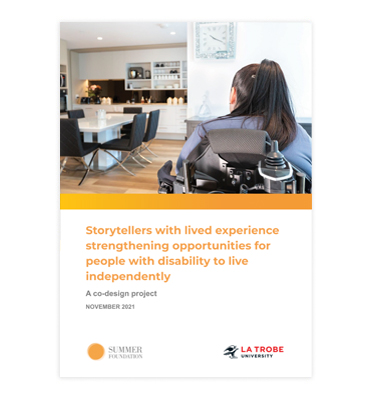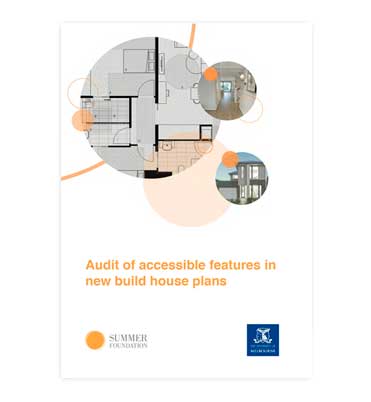Our research library is a catalogue of research the Summer Foundation has undertaken since its inception in 2006. The information in our research focuses on the needs, preferences and outcomes of younger people with disability, the impact of the NDIS, and ways to improve housing and living outcomes for people with disability.
To learn more about the Summer Foundation’s research projects, see our 2022–2023 annual research program report in our research library here.
There are 3 ways to search using the Filter Resources boxes below. You can type your key words in the first box or filter by tags or year of publication.
Please note that if a tag or year shows as (0) this means there are no publications in this particular library for that specified tag or year.




















































































